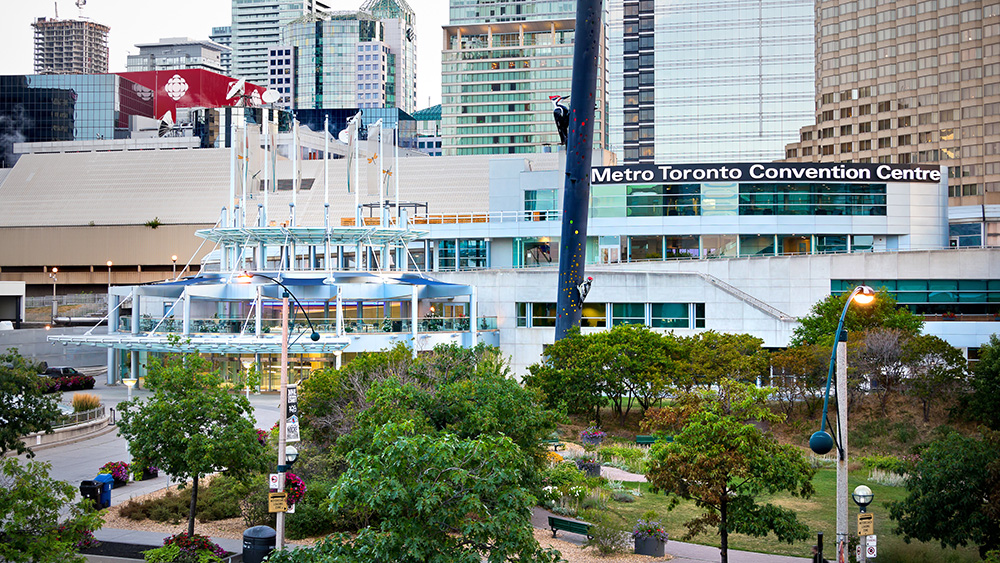
In addition to spotlighting local thought leaders and experts, the Metro Toronto Convention Centre team makes it a point to support local purveyors and producers with its F&B decisions — 100 percent of the wine and beer offered at the center is sourced locally.
“Diversity, Our Strength” — that’s the motto of the city of Toronto, and it does more than inspire the city’s nearly 3 million residents: It’s a big reason why massive events like the tech-focused Collision Conference — which attracted 36,000 attendees in 2023 — call the biggest city in Canada home. Named the most diverse city in the world by the BBC, Toronto is a place where 250 cultures, backgrounds, and communities come together, and all those different influences and perspectives mix and remix.
As organizers develop strategies for events that make an impact, Destination Toronto is offering assistance with a new IDEAS — Inclusivity, Diversity, Equity, Accessibility, and Sustainability — guide. For organizations working to embrace those qualities in their events, here are three key lessons from the guide to shape a more welcoming attendee experience.
Before: Set the Tone
You don’t have to wait until attendees arrive to create an inclusive event culture — it can start as soon as they begin to consider clicking the register button. That pre-event phase offers a window to help prospective attendees understand behavior guidelines. The code of conduct for events at the Ontario College of Art and Design (OCAD) offers a solid framework for outlining those expectations to help produce respectful conversations — even when conflict arises between differing viewpoints.
“Encourage all voices,” states the college’s Digging DEEPer event series, one of the many sources in the IDEAS guide. “Help new perspectives be heard and listen actively. If you find yourself dominating a discussion, it is especially important to step back and encourage other voices to join in.”
During: Put Diversity on the Program
In addition to helping attendees understand the role they play in creating a more welcoming environment, tap the local community to find thought leaders who can show an audience how to make progress in their own lives. And that doesn’t necessarily mean flying speakers in. Toronto’s IDEAS Guide includes an introduction to some of the most compelling voices in the local community, such as Joel Dembe, a five-time Canadian National Wheelchair Tennis Champion and Paralympian; Sage Paul, artistic director of Indigenous Fashion Week Toronto; and Brian Burke, hockey executive and advocate for LGBTQ+ rights in sports.
“The beauty of working with Destination Toronto is that we have connections,” said Mara Rodas, destination specialist, Destination Toronto. “We can connect you with an expert or help research speakers.”
After: Send Attendees Home With a Community-Inspired Care Package
In addition to offering hands-on CSR programs during the meeting, send attendees home with a gift that will keep them connected to their Toronto experience. Toronto’s IDEAS guide points organizers toward some of the destination’s standout BIPOC makers so that organizers can make a positive impact by supporting small businesses — like Canada’s first Black-owned granola company, Kare Granola, and carbonated alkaline spring water made by Chef Paul Owl, an Anishinaabe chef and traditional tea brewer from the Serpent River First Nation in Northern Ontario.
Visit DestinationToronto.com to access the full guide and learn how Toronto can make events drive a bigger impact on audiences.

